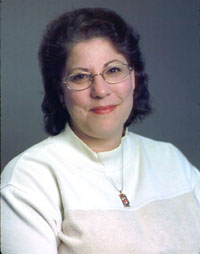Troubled Youths Struggle After Detention Center Stay
 |
| Dr. Karen Abram |
The kids who pass through juvenile detention facilities are among the most troubled youths in the community. How do they fare a few years after this significant brush with the legal system?
Researchers from Northwestern University’s Feinberg School of Medicine interviewed youths ages 13 to 22 who had been detained in Cook County Temporary Juvenile Detention Center to see how they were doing three years later. They found that more than 90 percent were struggling in their lives and more than 20 percent were severely impaired in their ability to function. The severely impaired group had been expelled from school, broken the law, and were addicted to drugs.
“This study highlights that we have failed to provide effective rehabilitation for these kids. We need to intervene early,” said Karen M. Abram, PhD lead author and associate professor of psychiatry and behavioral sciences at the Feinberg School. “There is a dearth of services for these kids. They need help in multiple areas over a sustained period of time.”
Abram suggests that interventions should include “wraparound” services in which an interdisciplinary team of professionals develop a treatment plan and service agencies work together to provide appropriate care. She said these youths need treatment for psychiatric disorders—especially addictions—as well educational and vocational training and social skills.
“These kids need alternatives to their criminal lifestyle,” said Dr. Abram, who also is associate director of the Psycho-Legal Studies Program at Feinberg. “We need to provide effective services. If we don’t, there are ongoing costs, both to these kids and to society.”
The paper was published on-line in the Journal of Adolescent Health and will appear in the print edition in the spring.
The study, which sampled 1,653 males and females, is part of the Northwestern Juvenile Project, an ongoing longitudinal study of health needs and outcomes of youth in the juvenile justice system. Funding was provided by the National Institutes of Health, the Office of Juvenile Justice and Delinquency Prevention, the Centers for Disease Control, the Substance Abuse and Mental Health Services Administration, and a consortium of other federal agencies and private foundations.






